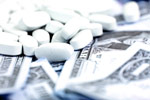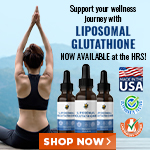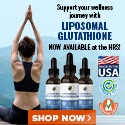
Review of scientific journals shows steadily increasing conflict of interest in funding of drug trials
Tuesday, August 15, 2006 by: Jessica Fraser
Tags: clinical trials, drug companies, medical journals
- Newly released JFK files reveal Pentagon's role in creating Lyme disease and covid in the same lab
- The hidden dangers in your kitchen: How cooking methods impact diabetes, cancer and aging
- DEADLY DECEPTION: How COVID vaccines increased mortality rates and why authorities hid the truth
- CDC finally halts $11 billion COVID funding scam as health officials admit the ‘pandemic’ was a fraud
- Arkansas embraces medical freedom with landmark ivermectin law
- GAIN-OF-FUNCTION CAT-BIRD-FLU now on the rise as nearly a dozen cats in Colorado "test positive" for Bird Flu due to contaminated cat food
- Home gardening for preppers: A beginner's guide to growing your own food
- Lab leak confirmed? Boris Johnson's stunning reversal on COVID origins sparks global debate
- Unraveling the paradox: Why intelligent individuals fall prey to everyday blunders
- Cartels shift tactics: Kidnappings and organ trafficking surge as border crossings plummet under Trump policies
- Why you should think twice before buying mainstream toothpaste formulas
- Trump's greatest betrayal so far: Accelerating Middle East wars, silencing dissent, and serving Zionist masters
- Was JFK's assassination orchestrated by a CIA double agent? New evidence points to James Angleton as the “architect”
- Key nodes of Federal Government censorship
- “Rent-a-womb” scandal: How China is exploiting U.S. birthright citizenship for long-term espionage
- ATTENTION PRESIDENT TRUMP: Please WITHDRAW your nomination of Dr. Susan Monarez for CDC Director as she is a VAX FANATIC and TOXIC JAB ZEALOT
- Record honeybee deaths devastate U.S. agriculture, pesticides under scrutiny
- Speaker Johnson warns Congress may defund or disband rogue courts targeting Trump
- Newly released JFK files reveal Pentagon's role in creating Lyme disease and covid in the same lab
- Elon Musk: Aliens could be here on Earth RIGHT NOW
- Festive flavors: The sweet history, nutritional profile and health benefits of pecan pie
- Trump reverses course on Gaza plan, says “nobody is expelling Palestinians”
- Reclaim your health: How midlife exercise reverses years of inactivity
- Big Pharma's $8 Billion bribery scheme exposed: how doctors are pushed to prescribe junk science, not heal
- Boys are back in town: Trump’s patriotic alpha crew takes the wheel while toxic females ride in the backseat
- EPA advisor admits the agency is funneling billions to climate groups ahead of Trump’s return to White House
- Space war brewing? Russia threatens to destroy Starlink satellites
- Survival 101: Effective EMF blocking techniques
- A lack of integrity in Academia: Harvard professor found GUILTY of fraudulent research to promote CRT theory
- Mike Adams Sermon 66: God will DESTROY ISRAEL for its wickedness
- 5 Simple steps to boost your brainpower: How to strengthen executive function in a distracted world
- Rep. Nancy Mace introduces bill to ban biological males from female facilities on federal property
- Sugarcane extract superior to cholesterol-lowering drugs?
- WHO focusing more on policing speech about public health and implementing global surveillance systems
- Pilots report mysterious lights 'moving at extreme speeds' across Oregon skies
- Dr. Mike Yeadon releases 15-minute testimony - WATCH - about genocidal intent of COVID “vaccines”
- EPA advisor admits the agency is funneling billions to climate groups ahead of Trump’s return to White House
- The Health Ranger releases “Vaccine Zombie” song and music video, using AI-animated zombies for the music video
- California's social media censorship law struck down: A victory for free speech or a threat to online safety?
- Dr. Mike Yeadon releases 15-minute testimony - WATCH - about genocidal intent of COVID “vaccines”
- The pandemic as a tool for INDOCTRINATION: Understanding “The Indoctrinated Brain” by Dr. Michael Nehls
- Florida takes a stand: DeSantis proposes permanent ban on mRNA vaccine mandates
- Mike Adams releases country western hit single: Goin’ Back in Time is Comin’ Home
- Mike Adams releases music poetry sensation: A Child of God
- “Why we influenced the 2020 elections”: Facebook files reveal the coordinated effort to bury the Hunter Biden laptop story
- RFK Jr. clears key hurdle: Sen. Susan Collins backs controversial HHS nominee, signaling a new era for health policy
- Unpacking the Lies That We’ve Been Fed – new song and music video released by Mike Adams, the Health Ranger
- Mike Adams releases new song and music video: Nothing More Disgusting Than a Globalist
- Newly released JFK files reveal Pentagon's role in creating Lyme disease and covid in the same lab
- Congratulations to the FULLY UNVACCINATED as you resisted the COVID-19 PROPAGANDA MACHINE fueled by over $100 BILLION
- Michigan sheriff announces criminal investigation into 2020 election crimes, Dominion Voting Systems
- Israeli soldiers accused of even more torture and abuse in the West Bank
- Migrants are taking advantage of recent hurricanes to scam residents and loot their homes
- House Intelligence Committee calls for the ARREST and PROSECUTION of Dr. Anthony Fauci
- Red Cross issues warning to stop blood plasma donations from vaccinated people
- Scientists confirm: GENIUS brain function can be spontaneously unleashed in humans without any apparent cause
- EPA advisor admits the agency is funneling billions to climate groups ahead of Trump’s return to White House
- HYSSOP: What research reveals about the health benefits of this ancient holy herb
- Two containers with completed ballots fall out of truck in Florida
- Fully vaccinated about to see “tsunami” of illness and death, warns virologist
- Global leaders unite to clamp down on “misinformation” with UN-backed Cascais Declaration
- BREAKING: 2025 NDAA authorizes mandatory military draft of WOMEN across America… as Pentagon pursues global NUCLEAR war with both Russia and China at the same time
- Michael Yon warns of a ZIONIST TAKEOVER in Trump’s second administration
- BOMBSHELL: DNA testing kits are a SCAM to develop ethnic-specific bioweapons
- Ozempic and Wegovy weight loss drugs are injectable LIZARD VENOM PEPTIDES that may unleash a devastating wave of organ failure… side effects align with symptoms of SNAKE BITES
- Israeli soldiers accused of even more torture and abuse in the West Bank
- These 13 countries just signed an agreement to engineer a global FAMINE by destroying food supply
- NASA admits that climate change occurs because of changes in Earth’s solar orbit, and NOT because of SUVs and fossil fuels
- RFK Jr. clears key hurdle: Sen. Susan Collins backs controversial HHS nominee, signaling a new era for health policy
- Sermon 30: How Jesus reveals Caesar’s FAKE CURRENCY and FALSE AUTHORITY
- Coriander seeds: Ancient medicine backed by modern science
- Arizona officials claim Maricopa County needs 10-13 days to tabulate results of the election
Unfortunately, in light of a recent review of major scientific journals, the information contained in many drug safety studies seems to be more corporate-spun PR than genuine science, especially when it concerns psychiatric drugs. According to new findings by a team of researchers from Beth Israel Medical Center in New York, between 1992 and 2002, the number of psychiatric drug studies paid for by pharmaceutical companies more than doubled -- from 25 percent in 1992 to 57 percent in 2002.
Psychiatrist Igor Galynker and a team of researchers reviewed clinical research from four major psychiatric journals -- Archives of General Psychiatry, American Journal of Psychiatry, Journal of Clinical Psychiatry and Journal of Clinical Psychopharmacology -- and discovered that eight out of 10 studies paid for by the pharmaceutical company making the drug in question showed favorable results. That's an unbelievable 80 percent success rate. Conversely, when studies were paid for by pharmaceutical companies competing with the firm making the drug in question, only three in 10 studies showed positive results. The studies conducted with no support from the pharmaceutical industry showed favorable results five out of 10 times.
The issue at hand is bias, and sadly, it's not a new phenomenon. It is also not limited to psychiatric drug studies. According to a June 2006 Agence France-Presse (AFP) article, private drug companies finance 75 percent of the studies published in the New England Journal of Medicine, the Journal of the American Medical Association and The Lancet in Britain. Do the math. That's a lot of potential bias.
"Anytime you leave the conduct, the analysis and writing up of a study in the hands of those likely to profit for it, you run the risk of bias and distortion," said Peter Lurie, deputy director of the Health Research Group at Public Citizen -- an organization for protecting consumers. Lurie also said that in addition to Big Pharma firms sponsoring drug studies, they also finance much of the drug approval work done by the Food and Drug Administration (FDA). "There is a fundamental conflict of interest in considering a drug for approval when you know the sponsor is paying your salary," Lurie said.
Dr. John Abramson, a clinical instructor at Harvard Medical School and author of the critical 2004 book, "Overdosed America: The Broken Promise of American Medicine," said in an op-ed piece he wrote in January 2006 for the Los Angeles Times: "Before 1980, most medical studies were publicly funded, and most academic researchers scorned industry support. Now, however, the vast majority of clinical trials are commercially funded, and with the financial stakes so high, there is mounting evidence of individual scientists and corporations manipulating their findings."
Abramson cited the now-well-known case of Vioxx to illustrate his argument, pointing out that U.S. doctors prescribed $7 billion of Vioxx prescriptions after Merck and the FDA knew that Vioxx caused significantly more heart attacks, strokes and blood clots than naproxen -- sold over the counter as Aleve -- regardless of whether or not patients had a history of heart disease. Why?
"Because the New England Journal article that ostensibly reported the results of Merck's study didn't even mention either the cardiovascular or the overall dangers of Vioxx," Abramson wrote. "Instead, it reported only selective data on heart attacks and strokes, allowing Merck to claim that Vioxx wasn't a risk to people without a history of these problems ... Doctors were left with the impression that Vioxx was safer than naproxen when exactly the opposite was true."
Abramson also said in his Los Angeles Times op-ed article that commercial bias in research studies has led him to the conclusion that "...most of the evidence in what doctors believe to be 'evidence-based medicine' is more infomercial than dispassionate science."
Why peer review is broken
One might wonder how prominent, peer-reviewed medical journals could be fooled into printing such biased studies. After all, the very idea behind peer reviewing is to weed out inaccurate work by having experts approve scientists' work prior to publication. According to Abramson, a vocal critic of commercial bias in medical reporting, the problem largely stems from the fact that, "At present, journal editors and peer reviewers typically are not allowed unrestricted access to the data from commercially sponsored research." Not even the drug companies' own researchers, who generally write the articles that appear in medical journals, are allowed complete access to all of the funding company's data.And to compound the problem further, most medical journalists aren't trained in the scientific or statistical fields necessary to sift through the corporate propaganda rampant in today's medical studies. In a critical 2003 "Watchdog" article that appeared in Harvard University's Nieman Reports, Abramson called for a much-needed middle ground between today's standard of scientific reporting -- "simply passing on sensationalized, commercially-generated versions of 'breakthroughs' in medical science" -- and shouldering long, drawn-out investigative reports to unravel corporate-spun data.
Abramson also delved into medical reporters' difficulties in properly reporting the results of scientific studies. He offered this advice to aid medical journalists: "When financial ties exist between researchers and the medical industry, the results of a study are 3.6 times more likely to be pro-industry. Be suspicious ... With many millions, even billions of dollars at stake, the drug and device industries hire the best and the brightest researchers, writers, business people, and public relations firms to spin research findings to their advantage."
And therein lies the rub. Research findings can be spun any number of ways to suit any number of corporate aims. The statistics are telling: Eighty percent of studies paid for by the drug firm making the tested drug come out positive, but only 30 percent of the studies paid for by drug companies testing a competitor's drug come out positive.
What do these statistics tell the consumer? An obvious argument is that drug companies shouldn't be funding their own studies, given the suspiciously high success rate in such cases. However, what the public should take away from the results of the Beth Israel study is that no scientific study funded by any drug company can be trusted to be accurate. "Most clinical research is fundamentally commercial activity -- albeit cloaked in the guise of public service -- designed to maximize corporate profits," Abramson wrote in his Watchdog article.
What, then, can the public do to protect itself from such fraudulent, often dangerous pseudo-science? The answer offered by Sidney Wolfe of Public Citizen is to completely remove pharmaceutical company funding from the picture. Wolfe says the government should be footing the bill for drug research because public programs pay so much for the medications that come from that research.
However, since Big Pharma's pockets are far deeper than Uncle Sam's, it seems unlikely that the government will step in anytime soon. In the meantime, medical journalists -- including the editors of scientific journals -- must probe deeper into the possible biases of drug research, and must verify all data received from drug companies prior to publication, which is considered verification by readers of those journals. However, as Abramson says, "Whether this is an achievable goal -- within the customary practices of journalism today -- is another story."
###
Clinical trials at FETCH.news
Get independent news alerts on natural cures, food lab tests, cannabis medicine, science, robotics, drones, privacy and more.
Take Action: Support Natural News by linking to this article from your website
Permalink to this article:
Embed article link: (copy HTML code below):
Reprinting this article:
Non-commercial use OK, cite NaturalNews.com with clickable link.
Follow Natural News on Facebook, Twitter, Google Plus, and Pinterest
Science News & Studies
Medicine News and Information
Food News & Studies
Health News & Studies
Herbs News & Information
Pollution News & Studies
Cancer News & Studies
Climate News & Studies
Survival News & Information
Gear News & Information
News covering technology, stocks, hackers, and more



"Big Tech and mainstream media are constantly trying to silence the independent voices that dare to bring you the truth about toxic food ingredients, dangerous medications and the failed, fraudulent science of the profit-driven medical establishment.
Email is one of the best ways to make sure you stay informed, without the censorship of the tech giants (Google, Apple, Facebook, Twitter, YouTube, etc.). Stay informed and you'll even likely learn information that may help save your own life."
–The Health Ranger, Mike Adams













































